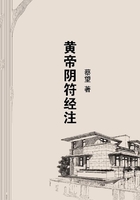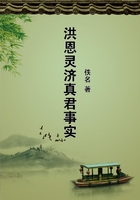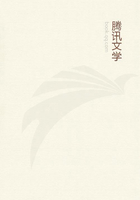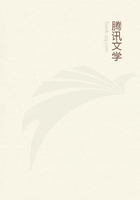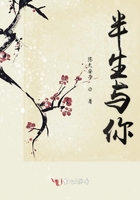But the most interesting and instructive of the "Canterbury Tales"are those which relate to the religious life, the morals, the superstitions, and ecclesiastical abuses of the times. In these we see the need of the reformation of which Wyclif was the morning light. In these we see the hypocrisies and sensualities of both monks and friars, relieved somewhat by the virtues of the simple parish priest or poor parson, in contrast with the wealth and luxury of the regular clergy, as monks were called, in their princely monasteries, where the lordly abbot vied with both baron and bishop in the magnificence of his ordinary life. We see before us the Mediaeval clergy in all their privileges, and yet in all their ignorance and superstition, shielded from the punishment of crime and the operation of all ordinary laws (a sturdy defiance of the temporal powers), the agents and ministers of a foreign power, armed with the terrors of hell and the grave. Besides the prioress and the nuns' priest, we see in living light the habits and pretensions of the lazy monk, the venal friar and pardoner, and the noisy summoner for ecclesiastical offences: hunters and gluttons are they, with greyhounds and furs,, greasy and fat, and full of dalliances; at home in taverns, unprincipled but agreeable vagabonds, who cheat and rob the people, and make a mockery of what is most sacred on the earth. These privileged mendicants, with their relics and indulgences, their arts and their lies, and the scandals they create, are treated by Chaucer with blended humor and severity, showing a mind as enlightened as that of the great scholar at Oxford, who heads the movement against Rome and the abuses at which she connived if she did not encourage. And there is something intensely English in his disgust and scorn,--brave for his day, yet shielded by the great duke who was at once his protector and friend, as he was of Wyclif himself,--in his severer denunciation, and advocacy of doctrines which neither Chaucer nor Duke of Lancaster understood, and which, if they had, they would not have sympathized with nor encouraged. In these attacks on ecclesiastics and ecclesiastical abuses, Chaucer should be studied with Wyclif and the early reformers, although he would not have gone so far as they, and led, unlike them, a worldly life. Thus by these poems he has rendered a service to his country, outside his literary legacy, which has always been held in value. The father of English poetry belonged to the school of progress and of inquiry, like his great contemporaries on the Continent. But while he paints the manners, customs, and characters of the fourteenth century, he does not throw light on the great ideas which agitated or enslaved the age. He is too real and practical for that. he describes the outward, not the inner life. He was not serious enough--I doubt if he was learned enough--to enter into the disquisitions of schoolmen, or the mazes of the scholastic philosophy, or the meditations of almost inspired sages. It is not the joys of heaven or the terrors of hell on which he discourses, but of men and women as they lived around him, in their daily habits and occupations. We must go to Wyclif if we would know the theological or philosophical doctrines which interested the learned. Chaucer only tells how monks and friars lived, not how they speculated or preached. We see enough, however, to feel that he was emancipated from the ideas of the Middle Ages, and had cast off their gloom, their superstition, and their despair. The only things he liked of those dreary times were their courts of love and their chivalric glories.
I do not propose to analyze the poetry of Chaucer, or enter upon a critical inquiry as to his relative merits in comparison with the other great poets. It is sufficient for me to know that critics place him very high as an original poet, although it is admitted that he drew much of his material from French and Italian authors.
He was, for his day, a great linguist. He had travelled extensively, and could speak Latin, French, and Italian with fluency. He knew Petrarch and other eminent Italians. One is amazed that in such an age he could have written so well, for he had no great models to help him in his own language. If occasionally indecent, he is not corrupting. He never deliberately disseminates moral poison; and when he speaks of love, he treats almost solely of the simple and genuine emotions of the heart.
The best criticism that I have read of Chaucer's poetry is that of Adolphus William Ward; although as a biography it is not so full or so interesting as that of Godwin or even Morley. In no life that Ihave read are the mental characteristics of our poet so ably drawn,--"his practical good sense," his love of books, his still deeper love of nature, his naivete, the readiness of his description, the brightness of his imagery, the easy flow of his diction, the vividness with which he describes character; his inventiveness, his readiness of illustration, his musical rhythm, his gaiety and cheerfulness, his vivacity and joyousness, his pathos and tenderness, his keen sense of the ridiculous and power of satire, without being bitter, so that his wit and fun are harmless, and perpetually pleasing.
He doubtless had great dramatic talent, but he did not live in a dramatic age. His especial excellence, never surpassed, was his power of observing and drawing character, united with boundless humor and cheerful fun. And his descriptions of nature are as true and unstinted as his descriptions of men and women, so that he is as fresh as the month of May. In his poetry is life; and hence his immortal fame. He is not so great as Spenser or Shakspeare or Milton; but he has the same vitality as they, and is as wonderful as they considering his age and opportunities,--a poet who constantly improved as he advanced in life, and whose greatest work was written in his old age.

